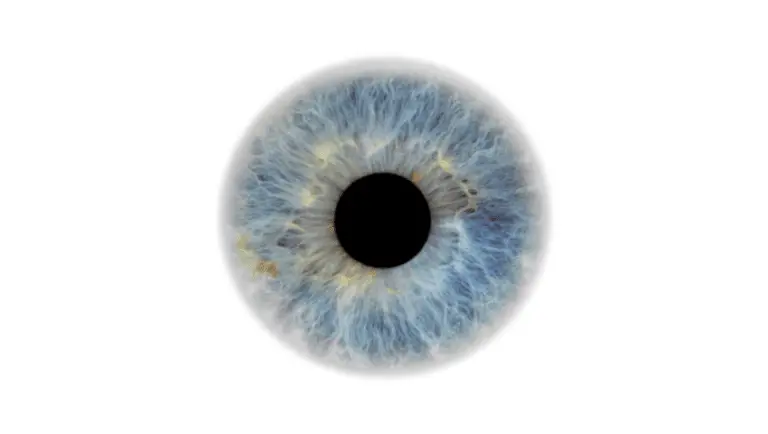Dentistry Course Duration .. Everything You Need to Know 2023
In this article we will inform you anything you need to know about dentistry course duration. Dentistry is a medical field that’s been around for centuries. It’s a branch of medicine that deals with the diagnosis, prevention and treatment of diseases, disorders and conditions of the oral cavity and its related structures.
Dentistry is a profession that requires years of training and education. It is no wonder that the duration of the course varies from one country to another. We will examine 5 years of dental school education with you.

Dentist
Dentistry is one of the professions that rely on the presence of a complete team in its work, as the dental team consists of a doctor, a dental laboratory technician, and an oral health specialist, and the team works in an integrated manner with each other to provide the patient with the desired results and to maintain the health and safety of his mouth and teeth. [1] The dentist is the team’s leader, and working as a team is one of the most convenient and cost-effective methods of work.
The dentist must examine the patient’s head and neck, noting any bulges, lumps, or the presence of abnormal pigmentation, and it may require diagnosing some diseases, developing treatment plans, as well as taking radiological images and knowing how to read them, and monitoring the growth of the jaw and teeth, as well as a procedure. Surgical procedures involving the mouth, teeth, bone, and surrounding tissues. [2]
Dentistry Course Duration
The study of dentistry lasts five years, during which the student studies many theoretical subjects, as well as clinical skills, to ensure his ability to provide excellent and appropriate care for patients. [3]
Following completion of the study, the dentist is able to diagnose and treat oral diseases, as well as treat the effects of accidents and imbalances that affect the mouth and teeth, and he is authorized to perform surgical procedures such as dental implants, bone implants, and tooth extractions, as well as conduct research and train new dentists. It is his responsibility to educate patients and teach them the proper ways to maintain their teeth and prevent diseases. [4]
First year
During this year, students learn about medical life sciences like anatomy, physiology, and microbiology. They also get an introduction to clinical dentistry, which teaches them how to deal with patients and improve their dental health. [5]
Second Year
This year builds on what was learned the previous year, with more dental-related subjects being studied. At this point, the doctor must be able to treat some dental issues, such as tooth decay. [5]
Third Year
This year, dental skills are being developed. This year, the doctor is dealing with children and can extract teeth. At this point, he must be able to visualize the anatomy of the head and neck completely. [5]
Fourth year
This year, the dentist’s knowledge expands to include orthodontics, anesthesia, and dealing with a wide range of patients and society in general. [5]
Fifth year
This year’s applied side will be fantastic, and the doctor will be asked to deal with cases of endodontic treatment, crowns, bridges, gum treatment, prosthodontics, and pediatric treatment. [5]
Also read: Studying Dentistry in Romania
Reasons to Study Dentistry

Some people prefer to study dentistry for a variety of reasons, including the fact that it deals with people and has the potential to improve their lives. It is about making people feel better and making their teeth and faces look better.
Another reason why some people choose to study this specialty is that it is one of the specializations that allows for flexibility in working times, days, and hours, and the doctor in it is independent and has the option to open his own clinic after graduation. This specialty necessitates work in a dental clinic, but it also allows for work in academic and research settings. [1]
Also read: Carol Davila University of Medicine and Pharmacy
Dental specialties
There are numerous specializations available in dentistry, the most important of which are:[2]
- Oral, maxillofacial, and maxillofacial radiology: This specialty is concerned with diagnosing oral diseases by taking various radiological images.
- Oral and Maxillofacial Pathology: This specialty aims to detect, diagnose, and conduct research on diseases affecting the mouth, teeth, and surrounding areas.
- Prosthodontics: This specialty is concerned with replacing missing teeth with artificial ones.
- Endodontics: This specialty is concerned with diagnosing and treating diseases of the dental nerve and surrounding areas.
- Periodontics, which is concerned with the diagnosis and treatment of diseases of the gums and the surrounding bone.
- Oral and Maxillofacial Surgery: This specialty deals with the surgical treatment of diseases of the mouth, face, and jaws.
- Orthodontics and Dentofacial Orthopedics, and this specialty diagnoses imbalances in the teeth and face, and works to correct them.
- Dental Public Health
- Pediatric Dentistry: This specialty deals with the treatment of children’s teeth.
Oral and dental health care
To take care of the health and hygiene of the mouth and teeth, the following procedures must be followed:
- Brushing teeth at least twice per day with fluoride toothpaste. [6] It is necessary to brush after each meal, but it is preferable to wait thirty minutes after eating, and the brushing process is done by moving the brush in circular motions, cleaning the surfaces of the upper and lower teeth from the inside, and it is also possible to brush and clean the tongue, and the toothbrush should be changed once every three to four months. [7]
- Cleaning between teeth with dental floss or interdental brushes[6]
- This should be done at least once a day, and the purpose of using dental floss is to remove residue stuck between the teeth that the toothbrush cannot remove. [8]
- Use mouthwash: Mouthwash kills bacteria in the mouth while also providing fresh breath. Fluoride-containing mouthwashes also help to prevent cavities.
- [8]
- Maintain a healthy lifestyle by not smoking or drinking alcohol, and limiting your intake of sugary foods.
- Carbohydrates and foods that stick to the surfaces of the teeth, such as toffee and chips, must be avoided.
- [8]
- At least once every six months, go to the dentist. [9]
References
- “WHY BE A DENTIST?”, www.adea.org
- Dentists: Doctors of Oral Health, www.ada.org
- Are you thinking of studying Dentistry?, www.oxford-royale.co.uk
- Career Resources, mouthhealth
- University Of Glasgow, “Undergraduate Dentist BDS”, www.gla.ac.uk
- “Take care of your teeth and gums”, www.nhs.uk
- Alfred D. Wyatt, “Caring for Your Teeth and Gums”, www.webmd.com
- Alfred D. Wyatt, “Caring for Your Teeth and Gums”, www.webmd.com
- Alfred D. Wyatt Jr. , “Caring for Your Teeth and Gums”, www.webmd.com
This post is also available in: Dansk (Danish) Nederlands (Dutch) Français (French) Deutsch (German) עברית (Hebrew) Italiano (Italian) Polski (Polish) Română (Romanian) Русский (Russian) Türkçe (Turkish) Español (Spanish) Български (Bulgarian) Ελληνικά (Greek) Magyar (Hungarian) Português (Portuguese (Portugal))





